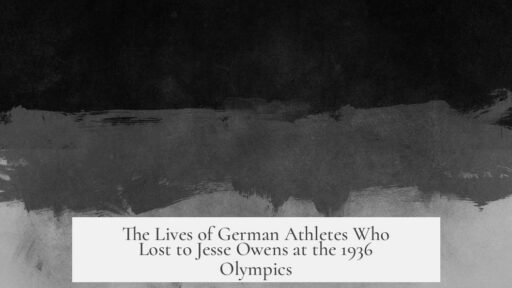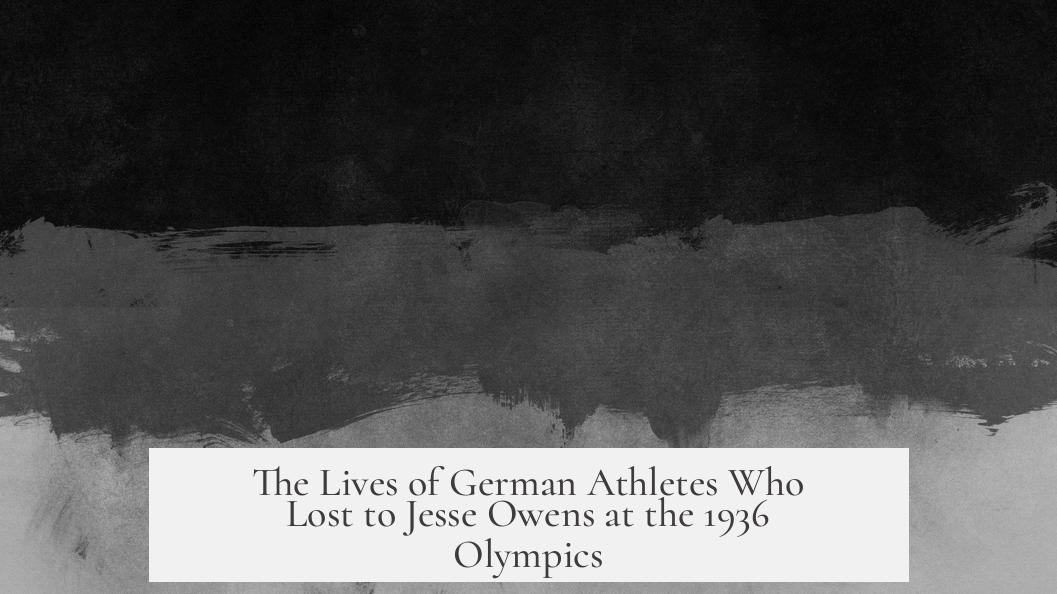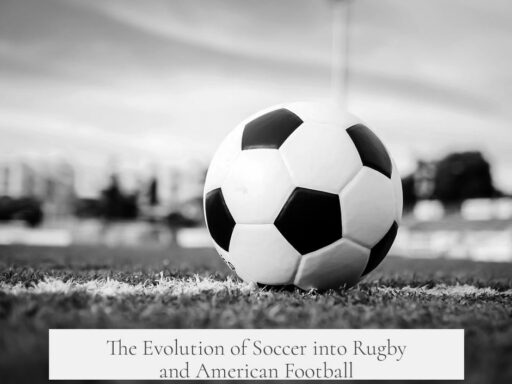The German athletes who lost to Jesse Owens in the 1936 Summer Olympics mostly went on with their lives amid the turbulent times of World War II, with varied fates ranging from wartime deaths to normal civilian life.

Luz Long, the long jumper who famously befriended Owens, gave Owens advice that helped him win the event. Long later enlisted in the German army (Heer) and died in Sicily in 1943 during the Allied invasion. Their friendship endured through correspondence until Long’s death. In his final letter, Long asked Owens to tell his son about their bond that transcended war and race.
Erich Borchmeyer, who competed against Owens in the 100m final and ran the 4x100m relay for Germany, finished 5th in the 100m and helped his team earn a bronze medal in the relay. Borchmeyer had little documented post-Olympic upheaval and no known persecution related to losing to Owens. He continued a typical life for athletes of that era.

Karl Neckermann, a 200m runner, raced against Owens in preliminary heats but did not advance to the finals. Like Borchmeyer, he appears to have faced no extraordinary consequences and lived a normal life thereafter.
Wilhelm Leichum was part of the German relay team and later died in the war, reportedly in Gorky, a city in Russia. His death reflects the common wartime loss affecting many athletes who fought in WWII.

The rest of the German competitors who lost to Owens or failed to medal mostly faced no special punitive measures. At the time, the Nazi regime sought to legitimize itself through the Games and avoided public punishment of athletes, especially those considered prominent. As a result, failing to win against Owens did not lead to mistreatment or retribution.
| German Athlete | Event | Outcome After Olympics |
|---|---|---|
| Luz Long | Long Jump | Died in WWII, maintained friendship with Owens |
| Erich Borchmeyer | 100m & 4x100m Relay | Bronze medalist, lived normal post-war life |
| Karl Neckermann | 200m | Did not qualify for finals, no major consequences |
| Wilhelm Leichum | 4x100m Relay | Died in wartime |
- Most German athletes experienced normal post-Olympic lives or died fighting in WWII.
- Luz Long showed sportsmanship and died in battle; he stayed friends with Owens until his death.
- The Nazi regime avoided punishing athletes who lost to maintain public image during the Games.
- None faced documented persecution specifically for losing to Owens.
What Happened to the German Athletes Who Lost to Jesse Owens in the 1936 Summer Olympics?

They mostly returned to ordinary lives, with stories ranging from tragic war deaths to peaceful quietude, except for one remarkable figure whose friendship with Jesse Owens defied Nazi ideology. The 1936 Berlin Olympics are etched in history, largely because Jesse Owens, an African American athlete, dominated the track, shattering Nazi myths of Aryan supremacy. But what became of the German athletes who lost to him? Their fates are surprisingly varied and surprisingly human.
Let’s take a closer look, starting with the story that stands out the most—Luz Long.

Luz Long: A Friend Beyond Politics
If you only know one German athlete connected with Jesse Owens, it’s likely Luz Long. Long wasn’t just Owens’ rival; he was also an unlikely mentor. At a time when Nazi propaganda preached hatred, Luz Long offered real human kindness. During the long jump event, Long gave Owens practical advice on how to improve his run-up. Owens took the advice and, lo and behold, beat Long to win gold.
Their respect and friendship endured beyond the stadium. They stayed in touch through letters until Long’s death in World War II. Luz Long enlisted in the German Heer (Army) and died in Sicily in July 1943 when the Allies invaded. One of his last letters to Owens is deeply poignant:
“My heart is telling me that this is perhaps the last letter of my life. If that is so, I beg one thing from you. When the war is over, please go to Germany, find my son and tell him about his father. Tell him about the times when war did not separate us and tell him that things can be different between men in this world. Your brother, Luz.”
This letter reveals a remarkable human story beneath the politics, showing that even in dark times, sportsmanship and friendship broke barriers.
Erich Borchmeyer: The Sprinter Who Tried to Keep Up
In the 100m sprint, Erich Borchmeyer was the only German who raced against Owens in the final. Owens took first place; Borchmeyer came in fifth. He had better luck in the semi-final heat but finished third behind Ralph Metcalfe, another African American sprinter from the USA.
He also competed as part of the German 4x100m relay team, which earned a bronze medal after finishing third behind the United States and Italy. Borchmeyer’s Olympic career illustrates a solid but overshadowed presence on the track.
Karl Neckermann: Nearly There, But Not Quite
Karl Neckermann competed in the 200m heats and consistently fought hard. In a preliminary heat, he finished third, just behind Jesse Owens, a tough act to follow. Neckermann eventually fell behind Mack Robinson—Jackie Robinson’s older brother—in subsequent heats. Ultimately, Neckermann didn’t qualify for the finals.
His reach toward greatness was there, but Owens’ dominance left little room for near-misses.
Wilhelm Leichum and Other German Athletes: War and Quiet Lives
Another team member, Wilhelm Leichum, also participated in the 4x100m relay. Unfortunately, he died in Gorky during the war years, adding to the war’s tragic toll on athletes from all nations.
For many other German Olympians who lost to Owens, life took its usual course. Most returned to everyday activities, careers, and families. The Nazi regime was still consolidating power in 1936 and shied away from punishing athletes for losing—even in events Hitler wanted to dominate.
There’s no documented case of German athletes being punished, shamed, or abused simply because Jesse Owens beat them. The Nazi leadership used victorious athletes to promote Aryan ideals but didn’t persecute those who lost.
This absence of punitive action suggests a pragmatic regime that understood the value of preserving its “golden boys” but didn’t punish failure harshly. It humanizes these athletes caught in a political storm, showing they were not mere pawns but men who lived complicated lives.
What Can We Learn From These Stories?
First, the human element. Sport is more than medals and records; it’s about connection, mutual respect, and courage. Luz Long’s story proves that friendship can blossom in tough times and cross ideological divides.
Second, history is nuanced. The German athletes weren’t caricatures of Nazi ideology; they were individuals living through extraordinary times. From Borchmeyer’s steady sprinting to Neckermann’s valiant efforts and Leichum’s tragic wartime death, each story reflects the broader human condition in 1930s Europe.
Finally, the 1936 Olympics show sports’ power to break barriers. Jesse Owens was more than a winner; he uprooted dangerous myths and inspired generations. But Owens’ German counterparts add texture, reminding us that everyone—in victory or defeat—has a story.
Final Thoughts: The Beyond-the-Track Legacy
When you ask, “What happened to the German athletes who lost to Jesse Owens?” the answer is a tapestry of remarkable lives. Some ended too soon in war; others quietly returned to ordinary living. Some, like Luz Long, became symbols of friendship against the odds.
Next time you think of the 1936 Olympics, remember Owens but also remember the humanity of the athletes who raced beside him. They remind us that history isn’t black and white—it’s a mix of stories, struggles, and shared moments that still resonate today.




